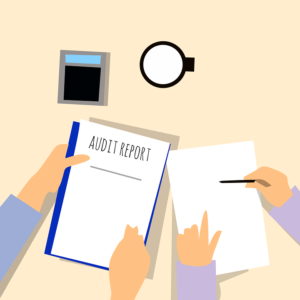POSTED IN: Asset Protection, General Info
TAGS: Finances, Taxes
Share this
The IRS conducts audits to minimize the “tax gap,” or the difference between what the IRS is owed and what the IRS actually receives. Sometimes audits are random. Here are seven of the biggest red flags likely to land you in the audit hot seat.
- Making Math Errors –When the IRS starts investigating, “oops” isn’t going to cut it. This applies to everyone who must file taxes. Mistakes happen, but you’ll be hit with fines regardless of whether your error was intentional.
- Failing to Report Some Income – An easy way to score an audit? Don’t report part of your income. Let’s say you’re employed herding sheep for Farmer Joe and you pick up a little extra cash writing articles for a sheep-shearing publication on a freelance basis. You may be tempted to submit only the W-2 Form from your herding job and keep the freelance writing income on your Form 1099 under wraps. (Form 1099 reports the non-wage income you get from things like freelancing, stock dividends and interest.) Well, guess what? The IRS already knows about income listed on your 1099, so it’s only a matter of time before it discovers your omission.
- Claiming Too Many Charitable Donations – If you made significant contributions to charity, you’re eligible for some well-deserved deductions. But if you don’t have the proper documentation to prove the validity of your contribution, you shouldn’t claim it. Claiming $10,000 in charitable deductions on your $40,000 salary is likely to raise some eyebrows.
- Reporting Too Many Losses on a Schedule C – This one is for the self-employed. If you are your own boss, you might be tempted to hide income by filing personal expenses as business losses. But consider the suspicion that too many reported losses can arouse. The IRS may begin to wonder how your business is staying afloat.
- Claiming Too Many Business Expenses – Along the same lines as reporting too many losses is reporting too many expenses. To be eligible for a deduction, purchases must be 1) ordinary and 2) necessary to your line of work. The question to ask is: Was the purchase absolutely necessary to performing my work duties?
- Claiming a Home Office Deduction – Home office deductions are rife with fraud. The IRS narrowly defines the home office deduction as reserved for people who use part of their home “exclusively and regularly for your trade or business.” That means a home office can qualify if you use it for work and work only. Occasionally answering emails on your laptop in front of your 72-inch flat screen TV doesn’t qualify your living room as a deductible office space. You can legitimately claim a home office deduction only if you have set off a section of your home strictly for business purposes.
- Using Nice, Neat, Round Numbers – In all likelihood, the numbers on your 1040 Form and supporting documents are not in simple, clean intervals of $100. When making your calculations, it’s best to be precise and avoid making estimations, rounding to the nearest dollar, not the nearest hundred.
Share this
Subscribe to our blog and monthly newsletter.











